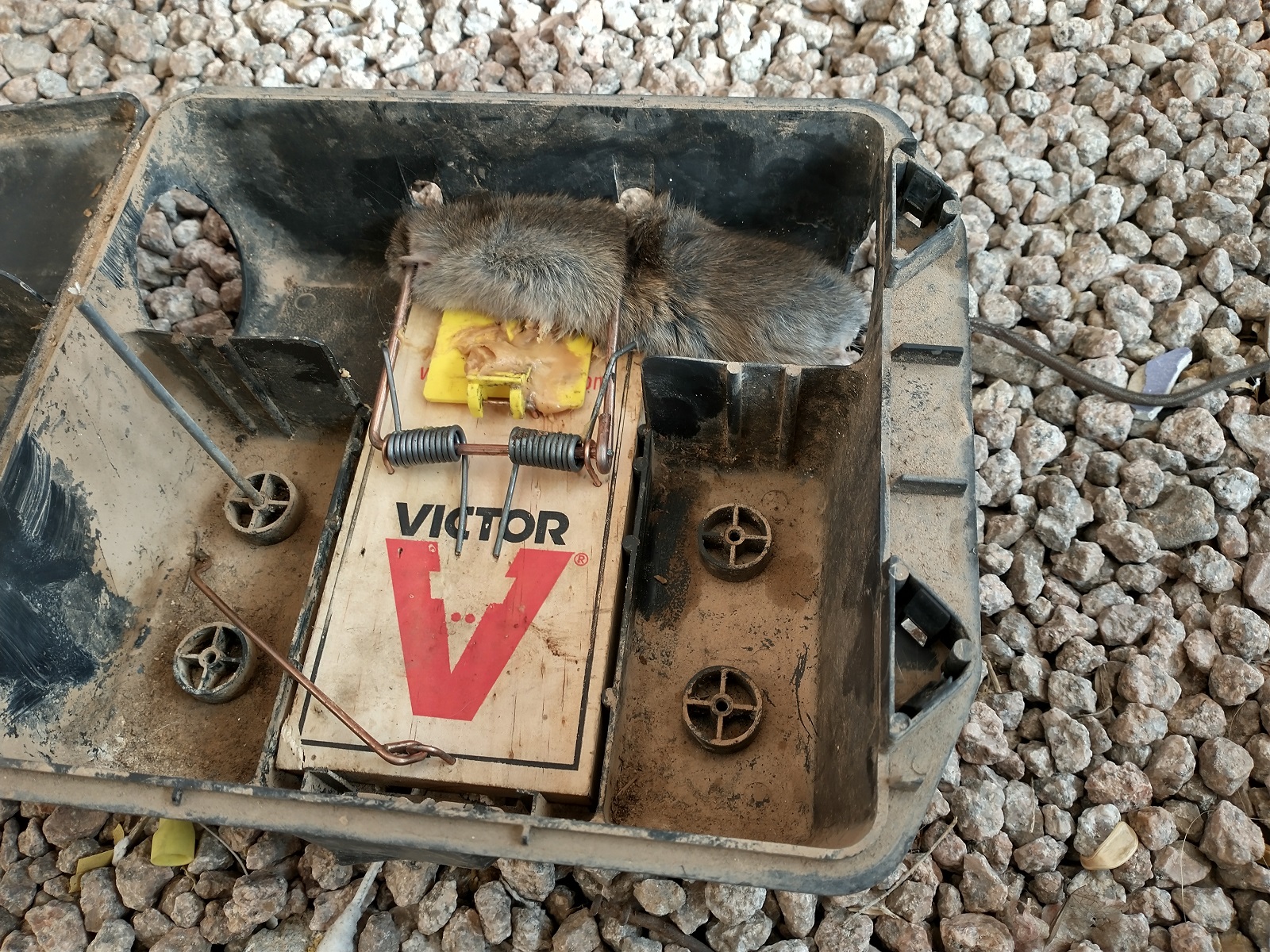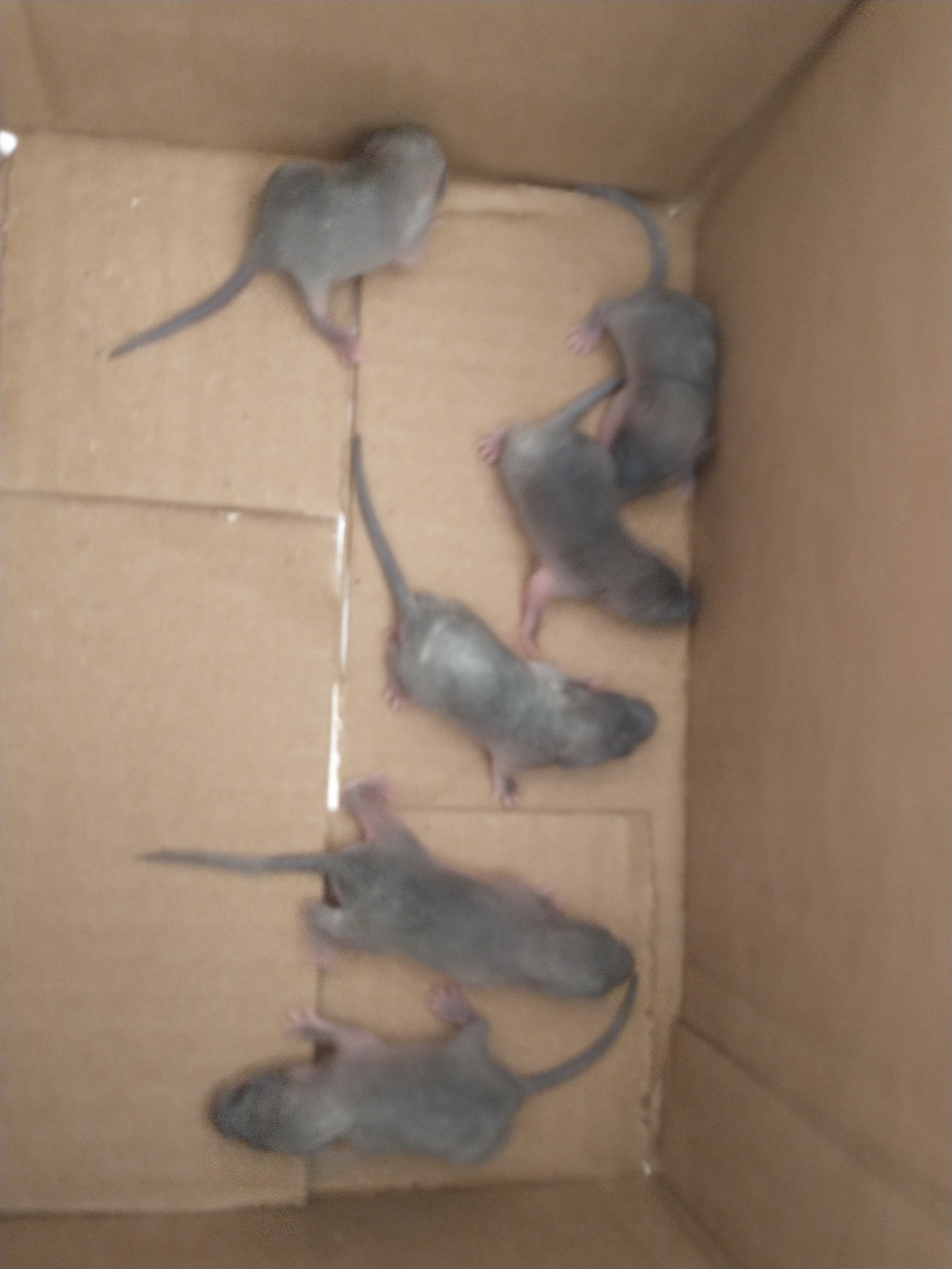Name: Pack rat, also called a trade rat or wood rat.
Size: They range in length from 8 to 20 inches, including their 3- to 9-inch tail.
Food: A diet of spiny cactus, yucca pods, bark, berries, pinyon nuts, seeds and any available green vegetation. They rely on succulent plants for their water.
Habitat: Pack rats are prevalent in the deserts and highlands of western United States. Pack rats build complex nests of twigs, called “middens”, often incorporating cactus. Nests are often built in small caves, but frequently also in the attics and walls of houses. Some will use the base of a prickly pear or cholla cactus as the site for their home, utilizing the cactus’ spines for protection from predators. Others, like the burrows of ground squirrels or kangaroo rats and fortify the entrance with sticks and bits of spiny cactus stems fallen from Jumping and Teddy-bear Chollas.
Behavior: Pack rats are active nocturnally (at night).They are especially fond of small, bright, shiny objects which they will readily confiscate.In fact, while carrying one trophy, the rat may see another that is more attractive, and so puts down the first to pick up the second, since it can carry only one item at a time.Woodrats can become quite a nuisance, getting into everything from attics to car engines, stealing their treasures, damaging electrical wiring and wreaking general, noisy havoc. The reproductive habits of rodents are extremely variable. They have been known to deliver up to 5 litters per year with as many as 5 young per litter. ( That’s 25 new rats a year per female, Wow!!! )
Name: Roof rat or Black rat.
Size: A typical rat will be 15–20 cm (5.9–7.9 in) long with a further 20 cm (7.9 in) of tail. In fact, it is distinguished from other rats by that tail, which is longer than the rest of its body.
Food: They have a preference for grains,fruits, and nuts. They are also a frequent predator of small birds, seeds, invertebrates, and perhaps lizards
Habitat: Outside, roof rats will nest in trees, woodpiles, garbage, and plants. In our area, oleanders seem to be a popular nesting location. Inside, high places, like attics, are their preference. Roof rats do not burrow in the ground or swim.
Behavior: Roof rats are nocturnal. Roof rats can transmit diseases like the bubonic plague and typhus. At this point, none of the roof rats captured and tested in Maricopa County have been diseased. Roof rats will enter homes and buildings. They only need a hole the size of a quarter to gain entry. Roof rats are good climbers. They can climb walls, tending even to flee upwards and use utility lines and fences to travel from structure to structure. Female roof rats can each have up to four litters a year, each containing five to eight young. In urban areas where they have no natural predators, the survival rate of the babies is high. If you have the following items around your home, you may be more prone to attracting roof rats: palm trees, yucca plants, pampas grass, honeysuckle, Italian cypress trees, any heavy shrubbery, wood piles, and storage boxes. Also harvest citrus when ripe and keep fallen citrus picked up!!!


We have services that can seal and eliminate some of the entry points rodents find and we can monitor and control rodents with an on going program that is customized to fit your specific needs. Not all rodent issues are the same. Rodents can be smart and fearful of traps and baits. We have the experience and knowledge to control and resolve your pesky rodent issues.
3 STEP TO HELP YOU WITH YOUR RODENT ISSUES-
1- Seal up entry points
2- Remove food and water source
3- Eliminate harborage areas. ie: wood piles, clutter, and debris.
Some Links to information about rats:
Photo Credits:
Pack rat – Ken Cole, USGS (Public Domain), Roof rat – Liftarn (GNU Free Documentation License, Version 1.2.
The information on this page was taken from Wikipedia under a GNU Free Documentation License unless otherwise noted.
Rodents multiply rapidly! Rodents carry and spread disease! Rodents gnaw and chew on things in your attic and in your walls. Don’t put off rodent control!!! We are just a click or call away!!!
